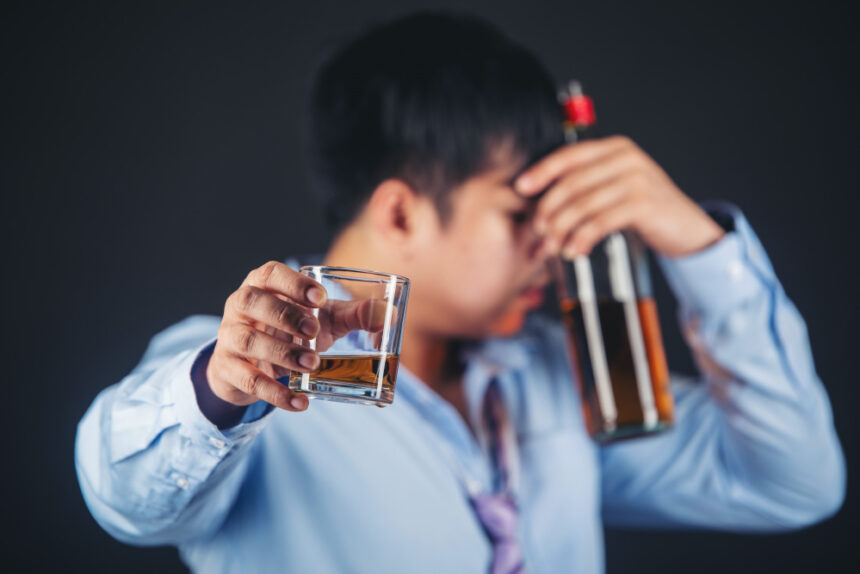When someone who has been drinking heavily for a long time stops suddenly, they may experience alcohol withdrawal symptoms. These symptoms can be uncomfortable and even dangerous, making it important to understand what to expect. The duration and severity of these symptoms can vary based on several factors.
What Is Alcohol Withdrawal?
Alcohol withdrawal happens when a person who has been drinking heavily suddenly reduces or stops alcohol consumption. The body has become used to alcohol, and when it’s removed, it can lead to various withdrawal symptoms. These symptoms can range from mild discomfort to serious health risks.
Factors that influence the severity and duration of withdrawal symptoms include:
- The amount of alcohol consumed.
- The length of time someone has been drinking.
- Overall health and genetics.
- Past experiences with alcohol withdrawal.
Timeline of Alcohol Withdrawal Symptoms
Withdrawal symptoms typically develop within a few hours and can follow a general timeline.
Stage 1: 6 to 12 Hours After the Last Drink
The first symptoms usually appear within 6 to 12 hours after the last drink. These can include:
- Mild anxiety: Feeling nervous or restless.
- Shaking (tremors): Involuntary shaking, often in the hands.
- Headaches: Discomfort in the head.
- Nausea and vomiting: Stomach discomfort and throwing up.
- Sweating: Increased perspiration due to anxiety.
- Insomnia: Difficulty sleeping.
At this stage, symptoms are often mild but can get worse without proper care.
Stage 2: 12 to 48 Hours After the Last Drink
Between 12 to 48 hours after the last drink, symptoms can become more intense:
- Increased heart rate and blood pressure: The body is adjusting to the absence of alcohol.
- Confusion: Feeling disoriented or mentally foggy.
- Severe anxiety and irritability: Emotional symptoms can become more intense.
- Seizures: Some individuals may have seizures, especially if they have a history of heavy drinking.
Medical supervision is crucial during this period, particularly for those at risk of seizures.
Stage 3: 48 to 72 Hours After the Last Drink
The most severe symptoms, known as delirium tremens (DTs), can occur between 48 to 72 hours after the last drink. This condition can be life-threatening and requires immediate medical attention. Symptoms of DTs may include:
- Hallucinations: Seeing or hearing things that aren’t real.
- Severe confusion: Not being aware of one’s surroundings.
- Fever: A sign of significant stress on the body.
- Agitation: Extreme restlessness and inability to relax.
- Severe seizures: These can be dangerous and require emergency care.
While only a small percentage of people experience DTs, it is vital to seek help if they occur.
Factors Influencing the Duration of Withdrawal Symptoms
Several factors can affect how long withdrawal symptoms last:
- Severity of Alcohol Use: Heavy and long-term drinkers often have more prolonged and severe symptoms.
- Age and Health: Older adults or those with health issues may take longer to recover.
- Previous Withdrawal Experiences: People who have gone through withdrawal before may have more intense symptoms during future attempts to quit.
- Co-existing Mental Health Issues: Conditions like anxiety or depression can make withdrawal harder.
Medical Treatment for Alcohol Withdrawal
Given the serious nature of alcohol withdrawal, it’s important to seek medical help if someone plans to quit drinking, especially if they have been heavy drinkers.
Medical professionals can provide medications to ease withdrawal symptoms and make the process safer. Common treatments include:
- Benzodiazepines: These help reduce anxiety and prevent seizures.
- Anticonvulsants: Medications to prevent seizures, especially for those at high risk.
- Beta-blockers: Used to lower heart rate and blood pressure.
Detoxing in a medical setting ensures that symptoms are monitored and managed effectively.
Coping with Withdrawal Symptoms
Along with medical treatment, there are several strategies to help manage withdrawal symptoms:
- Stay Hydrated: Drink plenty of water to help your body recover.
- Rest and Relax: Allow your body time to heal and try to avoid stress.
- Eat Well: A balanced diet can aid recovery. Taking vitamins and minerals might also help.
- Seek Emotional Support: Support from family, friends, or professionals can make a big difference during this time.
Long-Term Recovery After Withdrawal
It’s important to know that alcohol withdrawal is just the beginning of the recovery journey. Long-term recovery may involve:
- Counseling or Therapy: Helps address the reasons behind alcohol use and develop coping strategies.
- Support Groups: Joining groups like Alcoholics Anonymous (AA) can provide ongoing support.
- Lifestyle Changes: Incorporating new activities that don’t involve alcohol can help maintain sobriety.
Conclusion
Alcohol withdrawal symptoms can last from a few days to over a week, depending on the individual’s drinking history and overall health. While early symptoms may be mild, they can escalate to more severe issues, making medical supervision essential.
If you or someone you know is struggling with alcohol addiction, seeking professional help is crucial. If you’re in Ludhiana, consider reaching out to a Nasha Mukti Kendra in Ludhiana for expert guidance and support on the path to recovery.







